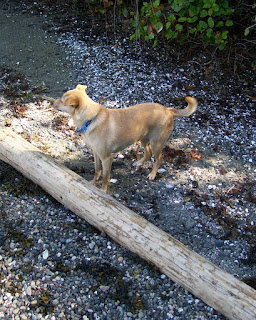photo by ldyck
I have dyslexia. Learning to read was a challenge. But my parents were avid readers. Before I could read they read to me and it was like they were opening a locked door and offering me glimpses of amazing worlds. When I learned to read I felt like I'd been given the key to that door. I write short stories so everyone regardless of ability can enter the worlds I've created.
On this blog, by my
15 of my short stories have been published in magazines, anthologies and online (other than on this blog). I've also self-published one short story collection. For more information, please read my Publishing History page.
The following links will take you to some interesting places. Have fun.
Video: Stephen King on the Craft of Short Story Writing
Articles: Why write short stories by Leanne Dyck
How to Write a Short Story That Captivates Your Reader by Jerry Jenkins
Writers, how do you end your story? by Leanne Dyck
What do editors do and why you should care? by Leanne Dyck
Why edit? by the Editor's Association of Canada
No MFA? Submit to these literary magazines by Leanne Dyck
Guest Post: Room Magazine
Guest Post: Submitting Manuscripts--an interview with Jami Macarty
Sending manuscripts to publishers--a workshop by Jami Macarty
Guest Post: Oak Tree Press' Acquisition Editor Sunny Frazier
Video: How to Make Money Writing Short Fiction with Douglas Smith
And stuff to dream about...
Bryan Washington wins the
Swansea University Dylan Thomas Prize
for his debut short story collection, Lot
Calgary writer Brenda Damen wins
2020 CBC Short Story Prize
Read Short Stories...
Your Favourites: a free short story collection by Leanne Dyck
Free Short Story Collection: the stories of my life by Leanne Dyck
The shortest short story
For sale: Baby shoes, never worn --Ernest Hemingway
My attempts...
One sunny day a worm went for a wiggle. He met a robin.
Or
Lonely, she visited twitter; he commented
They meet face-to-face
Now he never leaves her
Or
He stepped off the curb.
Thinking quickly, she avoided hitting him.
Months later, they married.
Or
He was born in the dark. He came to the light. He dwelled among the living. He died forgotten.
Or
Starving, she searched the cupboards. All she found was an ax. So she chopped off her toe and ate it. She didn't stop until she was full--gone.
Starving, she searched the cupboards. All she found was an ax. So she chopped off her toe and ate it. She didn't stop until she was full--gone.

Next Sunday evening...
May 24th
short story
Discovery
inspired by cvoid 19
because sometimes in order to deal with a situation
I have to write about it.
















